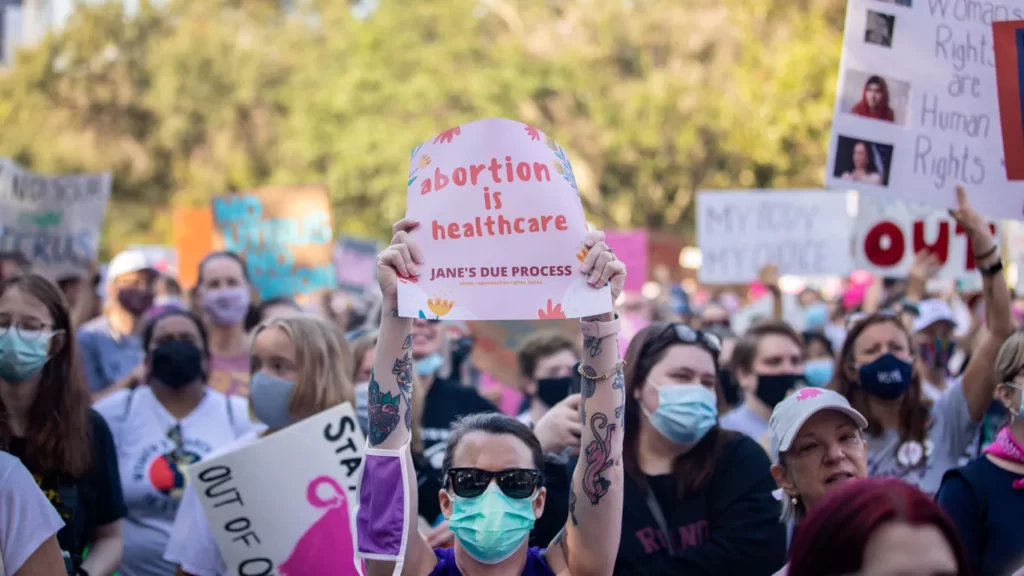Oriana Gonzalez
The Texas Supreme Court on Friday ruled that state officials do not have the ability to enforce the state’s six-week abortion ban, effectively ending providers’ case challenging the law.
Driving the news: Because the law was written so private citizens could enforce it, the court wrote, “Texas law does not grant the state-agency executives named as defendants in this case any authority to enforce the Act’s requirements, either directly or indirectly.”
- “Senate Bill 8 provides that its requirements may be enforced by a private civil action, that no state official may bring or participate as a party in any such action, that such an action is the exclusive means to enforce the requirements, and that these restrictions apply notwithstanding any other law.”
- The law will remain in place in the state.
Catch up fast: In January, the 5th U.S. Circuit Court of Appeals heard the challenge after the Supreme Court allowed for the abortion providers’ lawsuit against state officials to continue.
- The state argued that they were immune to the lawsuit because the Texas law does not grant them authority to enforce it.
- The appeals court transferred the challenge to the state’s supreme court, asking it to answer the question on whether the state officials named as defendants in the case, including the attorney general and those tasked with doctor licensing, could take action against those who violate the ban.
- The Texas Supreme Court’s decision means abortion providers cannot sue state officials in order to challenge the law.
What they’re saying: “We are in a moment of crisis not only for reproductive rights but for our justice system and the rule of law. With this ruling, the sliver of this case that we were left with is gone,” said Nancy Northup, CEO of the Center for Reproductive Rights, one of the organizations representing the providers in the case.
- “An unconstitutional ban on abortion after six weeks continues unchecked in the state of Texas. The courts have allowed Texas to nullify a constitutional right.”
Texas Right to Life, an anti-abortion organization in the state, called the decision “a huge victory for Texas.”
- “We’re grateful that the law will continue saving thousands of lives,” said Kimberlyn Schwartz, the organization’s media director.
How it works: Texas’ S.B. 8 effectively bars nearly all abortions as soon as embryonic cardiac activity is detected, which can be as early as six weeks into a pregnancy and before many people know they are pregnant.
- The law provides no exceptions for rape or incest.
What we’re watching: The Texas Supreme Court’s ruling is focused on a procedural question, not on whether the law is constitutional.
Editor’s note: This article has been updated with comments from the Center of Reproductive Rights and Texas Right to Life.
Source: axios.com


